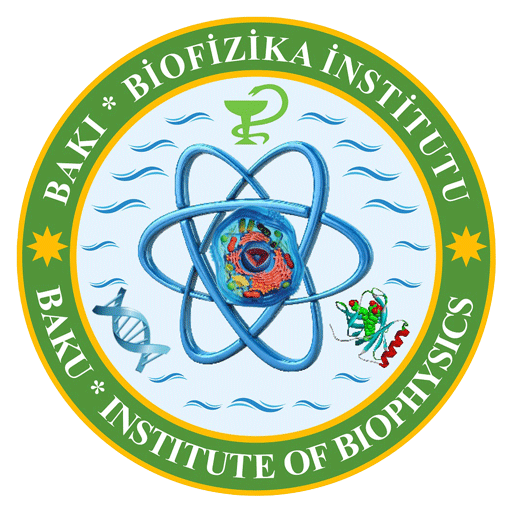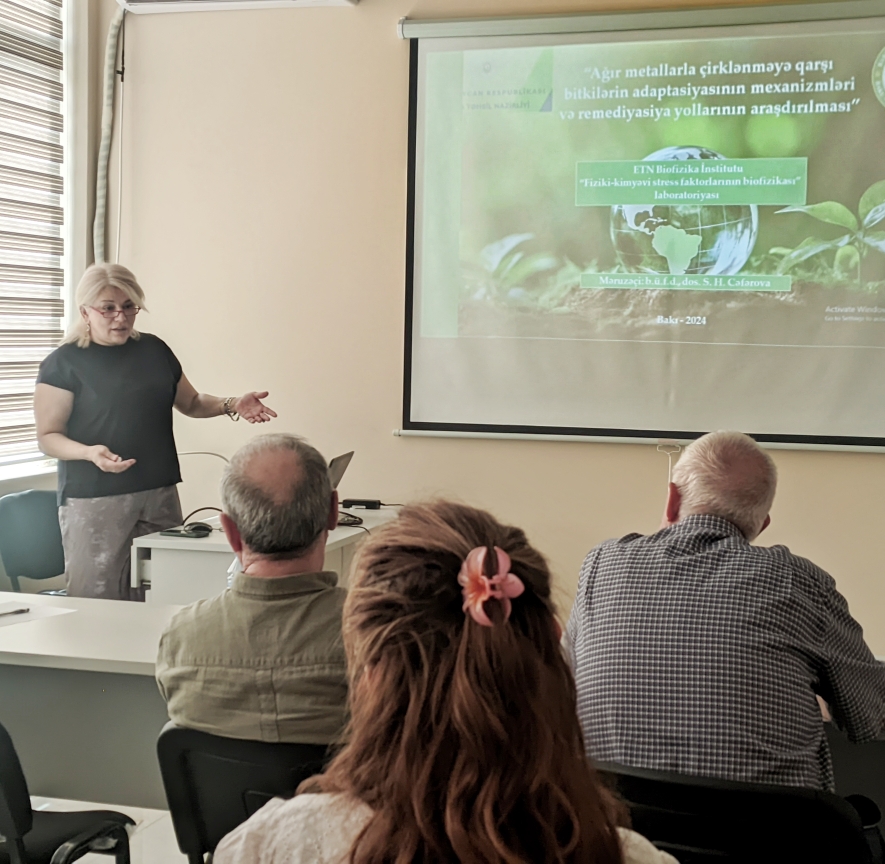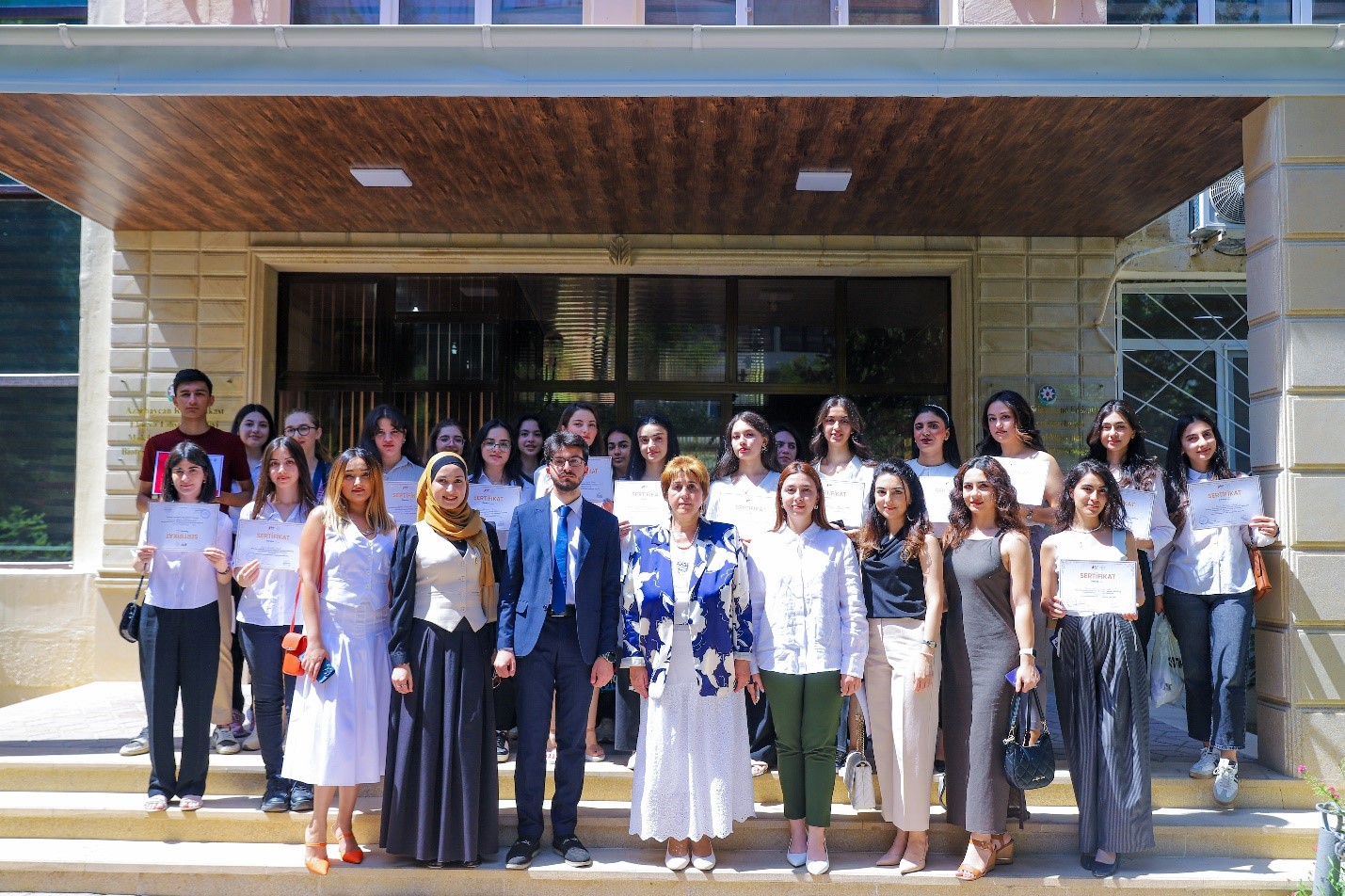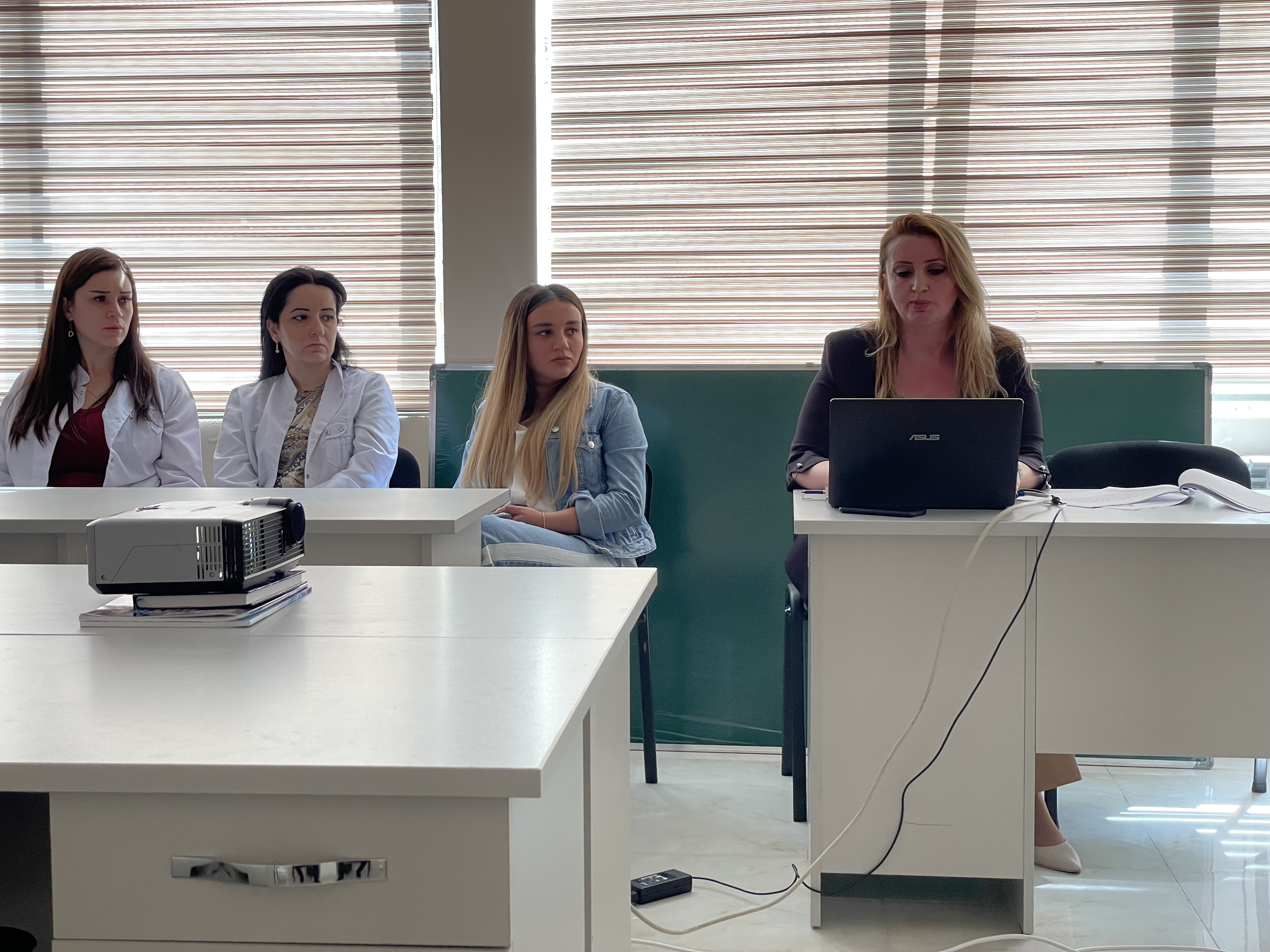A scientific seminar was held at the Institute of Biophysics on "Mechanisms of adaptation of plants against pollution with heavy metals and investigation of remediation ways"
A scientific seminar was held at the Institute of Biophysics of the Ministry of Science and Education, organized jointly with the Trade Union Committee of the scientific institution, within the framework of the "Year of Solidarity for a Green World".
Opening the seminar with an introductory speech, the General Director of the Institute of Biophysics, Corresponding Member of ANAS Oktay Qasimov, greeted the seminar participants and provided information about the relevance of the topic. He noted that the events carried out within the framework of the "Year of Solidarity for a Green World" are significant for the protection of nature and the resolution of ecological problems. Highlighting that this year provides an opportunity for more effective implementation of environmental protection measures through the cooperation and joint activities of all segments of society, O. Qasimov emphasized the importance of applying green technologies and the sustainable management of natural resources. He also noted the importance of scientific research and innovative solutions in this field, stating that the seminar is an important platform for discussing new ideas and proposals on this topic. He wished success to PhD in Biology, Assoc. Sevinc Jafarova, who would speak on this subject at the seminar, and invited her to share her experience and knowledge.
Following this, the head of the "Biophysics of Physico-Chemical Stress Factors" laboratory, PhD in Biology, Assoc. Sevinc Jafarova, delivered a presentation on "Mechanisms of Plant Adaptation to Heavy Metal Pollution and Remediation Methods." She stated that the issue of climate change on our planet has not bypassed Azerbaijan. According to "Azercosmos" agency, only 24 percent of our country's territory will not face the threat of drought. Combating drought is becoming a relevant topic for Azerbaijan. This year, Azerbaijan is preparing to host the 29th session of the Conference of the Parties (COP29) to the United Nations Framework Convention on Climate Change. The President of the Republic of Azerbaijan, Ilham Aliyev, noted in his speech that holding such a conference is "a demonstration of our green agenda." Under this slogan, contributing to the study of climate change and finding ways to mitigate it is a pressing task for Azerbaijani scientists.
During the seminar, solutions for enabling plants to grow and develop in soils contaminated with heavy metals were discussed. At physiological concentrations, iron, zinc, molybdenum, copper, and manganese act as cofactors for enzymes in many catalytic reactions, affecting photosynthesis, respiration, ethylene sensitivity, circadian rhythm, programmed cell death, and more. On the other hand, prolonged exposure to heavy metals reduces the synthesis of chlorophyll and other photosynthetic pigments in leaves, affecting the synthesis of saccharides and the nutrition and growth of the entire plant. Heavy metal ions, which have a high affinity for SH groups, form strong bonds with sulfhydryl groups of cell wall proteins and mitotic enzymes, thereby hindering cell division and plant growth. Iron, zinc, molybdenum, copper, and manganese, at doses exceeding the physiological needs of plants, can increase high redox activity and the accumulation of reactive oxygen species, potentially damaging enzyme systems and the structural and functional integrity of nucleic acids.
After the presentation, seminar participants expressed their questions and opinions on the topic.
In conclusion, Professor Oktay Qasimov wrapped up the seminar by thanking PhD in Biology, Assoc. Sevinc Jafarova on behalf of the participants and the institute's management for her interesting and informative presentation, and wished her success in her future research.








